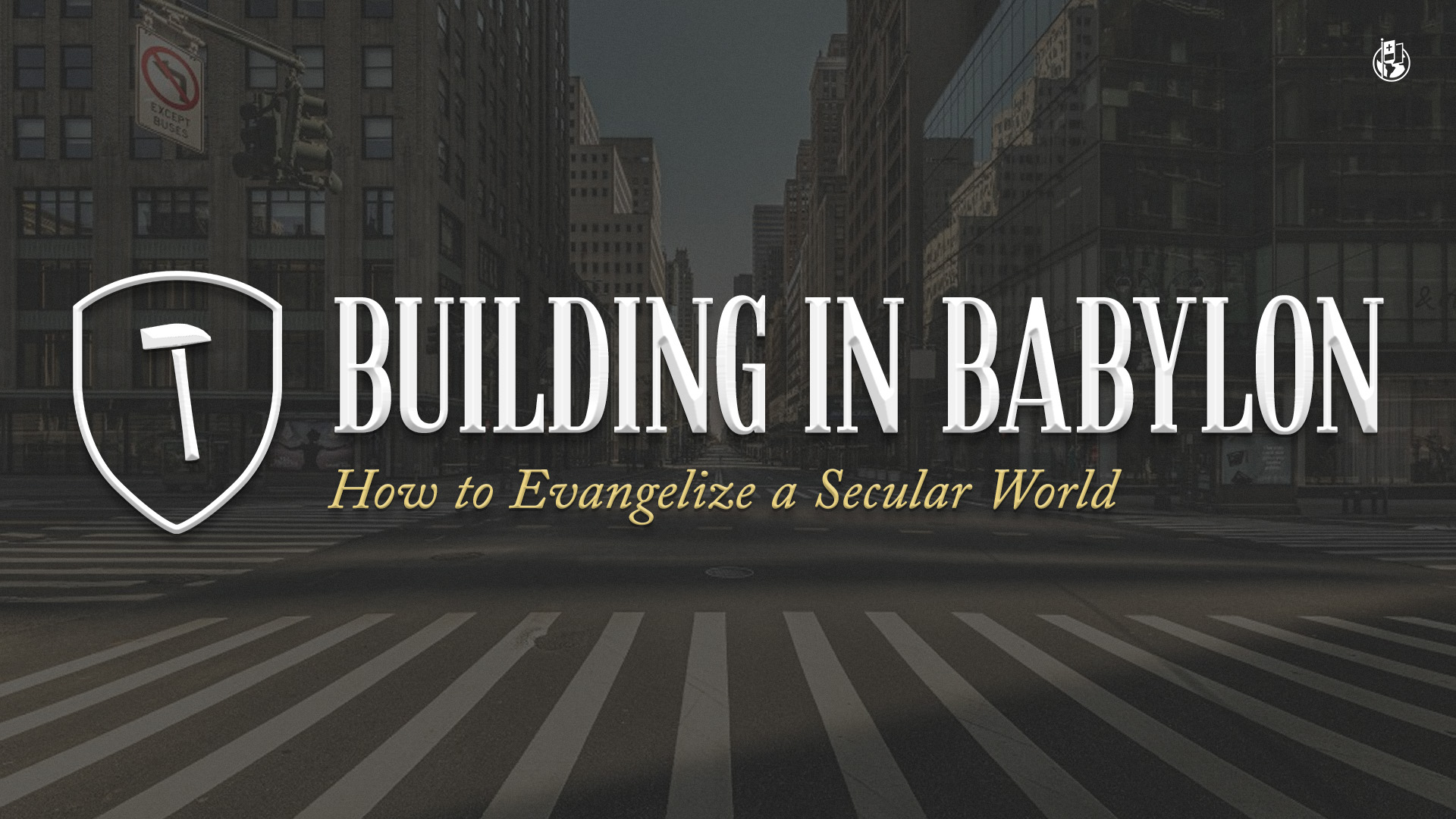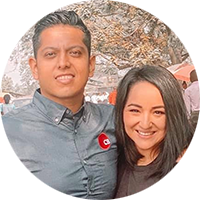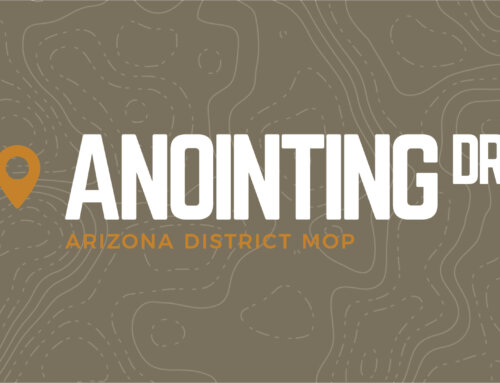

by Evangelist Ishmael and Sister Sarahi Montoya
The commitment and steadfastness displayed by the early believers, who continued in the Apostles’ doctrine despite adversity, provide both inspiration and guidance for us today. In a world where the values and beliefs of secularism appear to be on the rise, there’s a growing temptation to dilute or compromise our faith to fit in. Many see the Apostolic doctrine of the 21st century as a difficult one to follow. Society pressures Apostolics to leave their so-called ‘bigoted’ views behind and relax on the doctrinal principles. The question for us is not whether we should retreat from our beliefs but how we can effectively evangelize and disciple in this secular era.
So how should Apostolics evangelize in secular spaces, and how are disciples made in the modern era? Allow me to explore three challenges that affect all of us in disciple-making.
- The Power of Pre-Evangelism
- Careful Cultural Exegesis
- The Sin Underneath the Sin
The Power of “Pre-Evangelism”
No matter how hard we try to proclaim the Gospel or sugar-coat the message of salvation, people will most likely react “standoffish” to this message. The Gospel figuratively speaks about this challenge: “For we wrestle not against flesh and blood, but against principalities, against powers, against the rulers of the darkness of this world, against spiritual wickedness in high places” [Ephesians 6:12]. Therefore, we enter a war zone every time we try to evangelize. It has nothing to do with your persona, background, or attributes, but it has to do with who you represent.
However, I’ve learned that having a basic understanding of the person we’re trying to share our beliefs with can help ease any fear they may have about hearing our message. Building relationships and creating a safe environment where people can be themselves also makes them more open to discussing spiritual matters.
Pre-evangelism at work
As the CEO of Christian Brigades, a medical mission and short-term missionary organization, I receive missionary leads regularly. One such lead took me to India, where I formed a friendship with Sion Rajkumar, an Indian pastor and administrator of an orphanage. Despite our theological differences, our shared values, families, and dedication to ministry brought us together.
Sion, an educated Indian pastor and orphanage administrator, and I formed a deep friendship over twelve months of WhatsApp conversations. Despite a significant time difference, we discovered common ground in our secular education, young families, and shared commitment to ministry. Our theological differences, particularly on the trinitarian doctrine, didn’t hinder our friendship.
As our friendship grew, Sion became intrigued by the prospect of a medical mission project in his hometown, Vishakhapatnam, India, led by Christian Brigades. In 2017, I visited Sion, bringing a small group of pastors to empower his ministry. Remarkably, our visit wasn’t about imposing theological doctrines but strengthening our friendship.
We grew closer during our time in India, and our pending conversation on theology finally took place during a conference. During this discussion, God revealed the profound truth of the name of Jesus to Sion.
As our journey in India neared its end, Sion approached Bishop Joe Prado and me in our hotel room. In a private conversation, he asked if we would baptize him in the name of Jesus for the forgiveness of his sins. We found a way to make it happen, and I had the incredible privilege of participating in his baptism.
Pre-evangelism recipe?
Pre-evangelism is essential to evangelism because it creates a foundation beyond religion and church membership. The foundation that every Apostolic must learn to master is to create relationships. If you are trying to evangelize without doing the pre-work, it’s like cooking without preparing your ingredients and kitchen utensils. You will have the desire and can imagine the recipe. Still, you are unprepared with the proper tools and necessary ingredients.
My recipe for evangelism includes the following: relationship + investment + Word of God = Opportunity to introduce Jesus.
The ultimate reward
To build the church effectively, we must shift our focus away from instant gratification in our church environment. It’s essential not to expect immediate conversions from unconverted individuals who attend our events. In Galatians 6:7-10, the Apostle Paul reminds us that we reap what we sow. When we emphasize instant conversions, we risk trying to expedite God’s work, creating a shallow faith. Instead, we should heed Paul’s call in verse 9 not to grow weary in doing good. Our investment in relationships and discipleship will determine the kind of disciples God raises within our churches.
It took me over a year of relationship and investment to baptize Sion Rajkumar. He had questions in the middle of the night, and he insisted when we could visit him. It took a financial investment to travel and meet him and his family, and we took a risk that none of this might work at all, but God was faithful. Now, Bishop Sion Rajkumar is the Supervisor of the Apostolic Church of India. In 2023, over 53,000 baptisms in Jesus’s name have been recorded since that first-ever visit. Praise God!
2. Careful Cultural Exegesis
It was 1998, and I was only thirteen years old. Most teenagers my age were into sports, games, or other time-consuming collections. Nevertheless, my life was interrupted by the challenge of leaving family and friends here in America to embrace an entirely new culture.
I remember that three months into our arrival in San Pedro Sula, Honduras, my father had to go and baptize 15 people at a local river. So we prepared for this event and got our swimming clothes ready so that after the baptisms, we could all enjoy a dip into the river.
The adults did everything they needed to do, and then all of us younger ones had a great time in the water. Of course, when it was time to go home, we didn’t want to get out of the water. My parents were in the car waiting for me, and I had to take the final ‘canon ball’ jump and then run out of the water. Afterward, I quickly put on my shoes and ran towards the car. As I put on my shoes, there seemed to be rocks in both my shoes. I didn’t really think about it and just put up with the pain and ran towards my parents.
When I got home, everything changed for me. After 30 minutes of wearing those shoes with painful rocks, I realized they weren’t rocks but scorpions!
Indeed, God showed me that he was always with me. But I also learned an important lesson. From that moment, I was determined to make a careful cultural exegesis of my new geographic space.
Analyzing our surroundings
As Apostolics, we must do careful cultural exegesis when entering a new geographic space as a missionary or disciple-maker. Many times, we think we understand the geography, but perhaps we need to spend more time listening, observing, and analyzing a culture that we believe we are familiar with.
Often, we are so contained in our Apostolic huddles that we have stopped being able to relate to and understand the cultures around us. Instead, we need to see our backyards as a mission field and act like missionaries studying a foreign culture. We must stop having the instinct to critique other cultures and beliefs and embrace that missionary and discipleship work is an opportunity to collaborate with others even though we might not agree with everything they believe.
Making strong or weak evaluations
Charles Taylor, a retired professor from McGill University, discussed a significant idea in his book, “A Secular Age.” He challenged the concept of secularization and suggested that we live in an era of mobilization, where religion has evolved to attract people from diverse backgrounds on a large scale. Simply put, in our interactions with the world, we often make judgments. Some judgments are flexible and can be seen as personal preferences. However, if we are not considerate of other cultures, it can reflect poorly on us as individuals.
Why is what Charles Taylor says important? Well, if we judge people who aren’t part of a church solely based on our own experiences and beliefs, we may come across as insensitive to their perspectives. On the other hand, having strong convictions about the culture we are comfortable with can influence our approach to evangelism. For instance, we might be highly motivated to evangelize to people who speak our language, share our cultural background, or have similar education and beliefs. This strong attachment to a particular group can make us less inclined to reach out to those who are different from us, which can unintentionally contribute to unnecessary conflicts and misunderstandings.
The ultimate reward
When I submerged myself in the Honduran culture, I could fully appreciate their culture. I embraced their foods, their accent, and their sports preferences. If you didn’t know me before, you would’ve thought I was Honduran because I learned to speak like them, sing their national anthem, and create friendships I still keep in touch with.
My experience was so profound that I could give my very best to the will of God and not my own will for my missionary experience. I saw my family make a real impact in the Honduran church. During our 4-year tenure, the Honduran Apostolic church went from 1,100 to 3,500 members, from 10 churches to 24 churches nationwide. Praise God!
3. The Sin Underneath the Sin
We live in a global phenomenon called self-deception. The Scottish minister and professor of Theology, Thomas Chalmers, wrote in his book, “The Expulsive Power of a New Affection”:
“The best way of casting out an impure affection is to admit a pure one … It is only when, as in the Gospel, acceptance is bestowed as a present, without money and without price, that the security which man feels in God is placed beyond the reach of disturbance. Only then can he repose in Him as one friend reposes in another … The only way to dispossess the heart of an old affection is by the expulsive power of a new one.”
I remember a few months ago, I was evangelizing a young man. For privacy, let’s call this man Freddy. One day, about a month into the bible studies, Freddy was not demonstrating conviction about the power of prayer. I taught him that regardless of one’s status in the church, God hears us. I told Freddy, “God hears your prayer if you invite him to do so,” but Freddy was very quiet for the remainder of the bible study. We ended the session with prayer, and Freddy went home.
Freddy called me later that night, sounding frightened. He explained that his ex-girlfriend had been calling him persistently for weeks but had taken a disturbing turn that evening. She threatened to harm herself if he didn’t meet her at a bar.
Immediately, my spiritual light bulb turned on. God spoke to me and told me, “Hell is fighting for his soul.” As hard as I was fighting, praying, and fasting for him, hell had an entire kingdom fighting for his soul.
At that very moment, I instructed him to say a prayer of faith with me. We prayed, and then I told him to call the woman back and to say a prayer for her. I gave him instructions on how to do it and told him to call me back if he had any more questions. Ten minutes later, Freddy called me back and said, “Brother Ishmael, I don’t know what happened, when I started praying for her, a demonic voice started yelling at me, ‘NO, STOP IT!’ She started screaming and insulting me and she told me never to call her back.”
Hell has a way of knowing and testing the matters of your heart.
In order to heal the foundational sin that lies at the very foundation of your heart, you can only heal with the “expulsive power” of the love of Jesus Christ. Only the love of Jesus Christ can turn the matters of your heart.
The next day that I spoke to Freddy, he was shocked. He told me he had been looking for love in the wrong place. All of this resulted from the lack of love with his father. The devil tried to use the dysfunctional relationship between Freddy and his father to lead him to sin with this woman. But God stopped it. He stopped it because Freddy shared the matters of his heart with God, and God healed him.
Conclusion
In a world increasingly defined by secularism, the challenges of evangelism and discipleship can appear daunting. However, the strategies discussed—pre-evangelism, cultural exegesis, and the transformative power of Christ’s love—equip us with the tools to make a profound difference in our modern society. As Apostolics, we are called not to retreat from our beliefs but to engage thoughtfully and empathetically with the world around us. By building meaningful relationships, understanding diverse cultures, and embracing the expulsive power of God’s love, we can navigate the secular age and continue the vital work of making disciples and sharing the message of Jesus Christ with a world in need of His hope and salvation.
About the Author
 Evangelist Ismael and Sis. Sarahi Montoya are the founders of Christian Brigades, an interfaith organization providing sustainable health care, community development, educational structure, and emergency relief to underserved communities around the world through volunteer efforts. Ishmael and Sarahi both dedicate their time fully to the organization to empower volunteers of all ages locally & abroad, while bringing hope to rural communities around the world. Some of their most recent accomplishments have been the completion of a medical facility in Honduras, where practicing physicians and skilled professionals will be able to rotate thru. Another recent accomplishment was beginning their next project in Zambia, Africa in collaboration with the First Lady of the country, Mrs. Esther Lungu and the Esther Lungu Foundation. Their hope is to bring access to health care to rural communities around the world as a method to share Jesus through it all.
Evangelist Ismael and Sis. Sarahi Montoya are the founders of Christian Brigades, an interfaith organization providing sustainable health care, community development, educational structure, and emergency relief to underserved communities around the world through volunteer efforts. Ishmael and Sarahi both dedicate their time fully to the organization to empower volunteers of all ages locally & abroad, while bringing hope to rural communities around the world. Some of their most recent accomplishments have been the completion of a medical facility in Honduras, where practicing physicians and skilled professionals will be able to rotate thru. Another recent accomplishment was beginning their next project in Zambia, Africa in collaboration with the First Lady of the country, Mrs. Esther Lungu and the Esther Lungu Foundation. Their hope is to bring access to health care to rural communities around the world as a method to share Jesus through it all.




